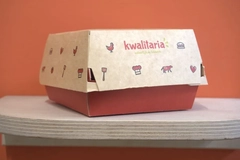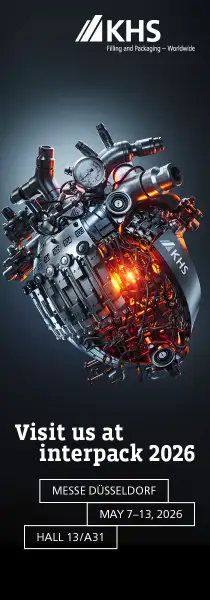German plastic tax delay sparks mixed reactions among industry associations

11 Jan 2024 --- The German plastic tax is postponed until 2025. Plastics industry associations are reacting with mixed responses, supporting the delay to refine tax details and condemning it due to the continued lack of addressing overproduction and pollution.
In December, the German government had announced the introduction of a plastic tax without further specifying how it would be applied or who would be affected. At the beginning of 2024, the federal government decided to postpone the implementation of the tax until January 1, 2025, to work out the details.
Ingemar Bühler, managing director at Plastics Europe Germany, the association of plastics producers, tells Packaging Insights that the postponement of the plastic tax to 2025 gives the federal government time “to improve the steering effect of the tax.”
Bühler believes that a one-sided tax on plastic packaging will not lead to the desired steering effect. “The Federal Environment Agency also points this out. Such a tax simply encourages packaging manufacturers to switch to other materials without any demonstrable benefit to the environment.”
Fixing the debt
Germany is suffering from a substantial fiscal crisis, with a €60 billion (US$65.7 billion) budget deficit triggered by the debt break in the German constitution. Bühler stresses that to tackle this deficit, the government had to develop solutions since these funds were initially earmarked for the industry’s transition to a climate-neutral circular economy.
 In December, the German government had announced a plastic tax without specifying its scope.“The government’s solution involves passing on the EU plastics levy to businesses and consumers. This change is expected to provide the EU with between €6–8 billion [US$6.6–8.8 billion] of additional revenue each year — in 2021, Germany alone transferred about €1.4 billion [US$1.5 billion] from its state budget to the EU as part of the plastics levy,” explains Bühler.
In December, the German government had announced a plastic tax without specifying its scope.“The government’s solution involves passing on the EU plastics levy to businesses and consumers. This change is expected to provide the EU with between €6–8 billion [US$6.6–8.8 billion] of additional revenue each year — in 2021, Germany alone transferred about €1.4 billion [US$1.5 billion] from its state budget to the EU as part of the plastics levy,” explains Bühler.
“Previously, the German government covered this levy, as did most EU member states. Until now, Spain has been the only country in the EU to pass this levy on to companies and consumers.”
Delay effective or not?
Jack McQuibban, the head of the Local Zero Waste Implementation at Zero Waste Europe, tells Packaging Insights that according to the latest official EU figures, Germany is the second highest country per capita for generating packaging waste.
“We would strongly discourage any delay in introducing measures to tackle this, such as the plastic tax. We have seen from elsewhere in Europe that these kinds of incentives are proven to deliver positive results, penalizing those who continue to put non-recyclable or reusable materials onto the market.”
“We hope there will be no further delays to the introduction of the tax beyond 2025, and that the German Government will use this extra time to ensure the tax is free of loopholes and does not encourage businesses to simply switch to other single-use items instead,” says McQuibban.
The German government aims to bridge the budget gap by reducing subsidies for fossil-based products and services, aiming to save money and advance the transition to a climate-neutral circular economy.
But Bühler says that a tax focused solely on plastic packaging will not achieve an intended or reasonable steering effect. “Instead, this will result in setbacks in terms of recycling and circularity. To save taxes, packaging manufacturers will most likely switch to alternative materials.”
“However, in many instances, alternative materials may not be as environmentally sound as plastics, primarily due to the higher energy inputs required for production and the greater weights involved. This would be a significant pushback for a circular economy and is a major concern raised by the federal environmental agency.”It remains unclear how the German plastic tax will influence consumers and industry.
Minimizing packaging waste in general
The EU introduced the plastic tax in 2021, mainly as a budgetary tool to compensate for the impact of Brexit. Bühler says that this tax is more about raising additional funds since no mechanisms are in place that ensure reinvestments in circularity.
“When introducing the tax, the federal government should be concerned about the steering effect. Therefore, the tax must be applied to all packaging materials and offer strong incentives to use more non-fossil materials such as biomass and CO2.”
He says that a reasonable approach would be to minimize the record of 240 kilograms of packaging waste per capita in Germany, out of which currently 38 kilograms are plastic, with the remainder being other materials, such as paper, glass or aluminum.
Bühler stresses that the German government now has the opportunity for a profound assessment and evaluation to draft a proposal in line to increase circularity and move away from the fossil era. “In general, there are much more effective ways to achieve the desired steering effect.”
“For example, by adjusting the existing Single-Use Plastic Fund, the German deposit system, or the environmentally modulated licensing fees already outlined in the Packaging Act. I am certain the government will follow the recommendations of the Federal Environment Agency and come up with a material-neutral approach by the end of the year.”
By Natalie Schwertheim












